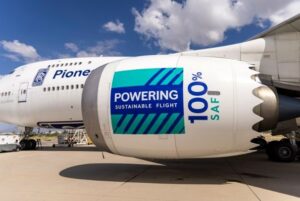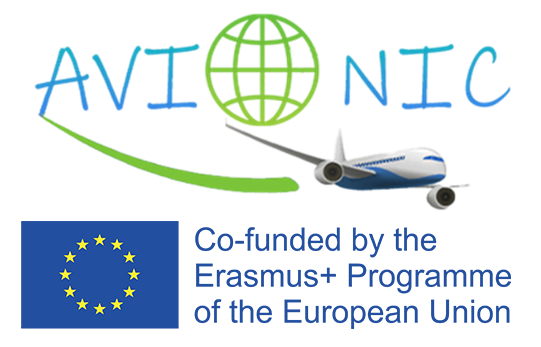Aviation news
Last week, ACI EUROPE (Airports Council International Europe) took a significant step towards sustainability in aviation. In addition to reconfirming European airports’ commitment to achieve Net Zero by 2050 at the latest, the organization published Net Zero roadmaps developed by 303 airports across 36 countries.
This move is particularly significant for two main reasons:
- It demonstrates that the industry’s commitment is not just words on paper but translates into concrete action.
- It brings European airports in line with the United Nations Guidance on Net Zero pledges, which recommends that such commitments should be backed by publicly disclosed and actionable plans.
For most of these airports, their commitment and roadmaps are underpinned by certification under the Airport Carbon Accreditation program. While the industry’s commitment primarily focuses on emissions directly controlled by airports (scopes 1 and 2), it acknowledges the imperative to also address emissions facilitated by airports (scope 3), particularly those from aircraft using airport facilities.
In this regard, certification requirements under Airport Carbon Accreditation have evolved over time. The higher certification levels now require airports to fully map their scope 3 emissions and actively engage with their stakeholders to reduce them.
ACI EUROPE emphasized that they will keep the program’s requirements under constant review, with the support and guidance of its Advisory Board members. These include representatives from organizations such as UN Climate Change, ICAO, European Commission, FAA, EUROCONTROL, ECAC, Manchester Metropolitan University Business School, and Aviation Environment Federation.
This initiative marks an important step in the aviation industry’s efforts to combat climate change and reduce its carbon footprint.
 Aviation is undergoing a change focused on digitalization and sustainability. The European Green Deal seeks to reduce emission levels from 1990 levels. This makes a change in all parts of the aviation industry necessary.
Aviation is undergoing a change focused on digitalization and sustainability. The European Green Deal seeks to reduce emission levels from 1990 levels. This makes a change in all parts of the aviation industry necessary.
In recent months, great steps are being taken to achieve sustainability. Virgin Atlantic, with the help of Rolls Royce, is preparing the first trans-Atlantic flight using 100% sustainable fuel.
A SAF blend of 88% HEFA and 12% aromatics has already been ground tested for the Rolls Royce Trent 1000 engine. These tests have been satisfactory, and Virgin Atlantic airline is considering launching it on a flight from London-Heatrow to New York JFK. This flight will be carried out by a Boeing 787 Dreamliner on November 28, 2023. This flight will consume 60 tons of SAF, which will be supplied by the fuel supplier Air BP (via Sustainable Aviation, link: https://www.aviacionline.com/2023/08/virgin-atlantic-y-rolls-royce-preparan-el-primer-vuelo-transatlantico-con-100-combustible-sostenible/).
As you can see in this news, to achieve a milestone like the first sustainable transatlantic flight, collaboration between many stakeholders is needed. In AVIONIC Project, co-funded by the European Union, we have this clear, for this reason, we try to achieve a joint vision focused on sustainability and digitalization of aviation, through education. We believe that in order to achieve these advances, it is necessary for the aviation professionals of the future to have digital and green competencies, to be able to contribute to this change that the industry is undergoing. For this reason, we continue to work to adapt our courses to the green needs of the industry.

Airport Carbon Accreditation – Towards a Cleaner and Sustainable Environment
During the UNESCO Chair workshops, the presentation on Airport Carbon Accreditation was met with great interest and sparked an active discussion. The participants appreciated the significance of this certification program in promoting sustainability in the aviation industry and reducing environmental impact.
Throughout the presentation, emphasis was placed on the methodology of accreditation, such as reducing environmental impact, enhancing airports’ reputations, and achieving cost savings. The participants expressed appreciation for the fact that the accreditation recognizes and rewards airports’ efforts in adopting sustainable measures.
Participants were keen to learn more about the accreditation process, including the stages of carbon footprint assessment and the development of emission reduction plans. Discussions revolved around the challenges airports face in implementing energy efficiency measures and explored potential solutions to overcome these obstacles.
The presentation of case studies from other airports that have already obtained accreditation was highly inspiring for the UNESCO Chair members and all the participants. These real-life examples demonstrated that obtaining accreditation is not only feasible but can also lead to significant results in reducing emissions and improving airports’ ecological performance.
As the debate continued, the UNESCO Chair highlighted the importance of collaboration among airports, governments, non-governmental organizations, and airlines to share best practices and effectively address challenges. Ideas and ways to involve more stakeholders in the accreditation program and increase awareness of sustainability in the aviation industry were discussed.
In conclusion, the UNESCO Chair reaffirmed its support for Airport Carbon Accreditation and expressed its commitment to continue promoting initiatives and programs that contribute to environmental protection and sustainable development in the aviation industry. Future actions and collaborations were planned to amplify the impact of the accreditation program and expand its applicability to more airports in the region.
